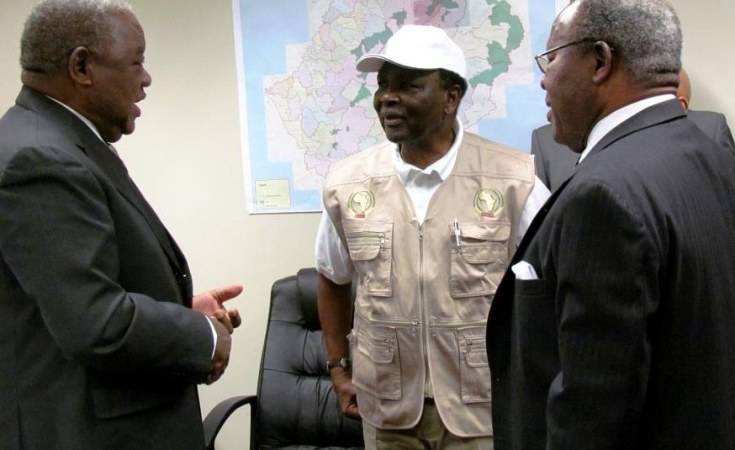Lesotho has seen political violence flare ahead of May 26 elections, with the opposition claiming that dirty tricks have undercut their turnouts.
Fifteen political parties and several independent candidates will fight for the country's 120 parliamentary seats, although the main battle will be between Prime Minister Pakalitha Mosisili's newly formed ruling Democratic Congress and his former party, the Lesotho Congress for Democracy (LCD), which is now led by Mothetjoa Metsing.
Lesotho, a nation of two million people completely surrounded by South Africa, had their last general elections in 2007.
During April, three months after Prime Minister Pakalitha Mosisili broke away from the LCD, there were reports of intimidation and low-level clashes between rival parties. At least 10 people were seriously injured in the clashes. According to Lesotho Times, an angry Mosisili allegedly urged his supporters to fight back raising fears of more violent clashes.
The Thetsane violence could be attributed to people who had for many years tried to have the government listen to their grievances without success, said Motlamelle Kapa, a lecturer in the Department of Social Sciences at the National University of Lesotho (NUL).
AFP reported that a small group of the country's roughly one million registered voters - mainly security services, health workers and media - were allowed to cast ballots early, sending many travelling through Lesotho's mountain roads to their hometowns to vote. Balloting was reportedly peaceful, "although worries for the voter roll emerged as some found their names weren't on the final list".
Analysts who spoke to the Lesotho Times said people often resort to violence when they have no alternatives to resolve their grievances. Sofonea Shale, a civil society activist with the Development for Peace Education said violence was mainly due to lack of tolerance. "We conduct our politics in a way that we do not tolerate other people's opinions that may differ from ours. "Everybody wants their opinion to prevail and not to be contested," Shale said.
The Southern African Development Community (SADC) Electoral Observer Mission was invited to observe elections in the kingdom on May 26 and the decision "is a true testimony that SADC Member States have rooted and entrenched democratic values and practices in the quest to enhance and consolidate democracy and democratic institutions in the region", said Head of SEOM, Ebrahim Ismael
Ebrahim.
The recent outbreak of violence that Lesotho witnessed is a sign that those in power have become unresponsive to the voice of the people, reported the Lesotho Times.


